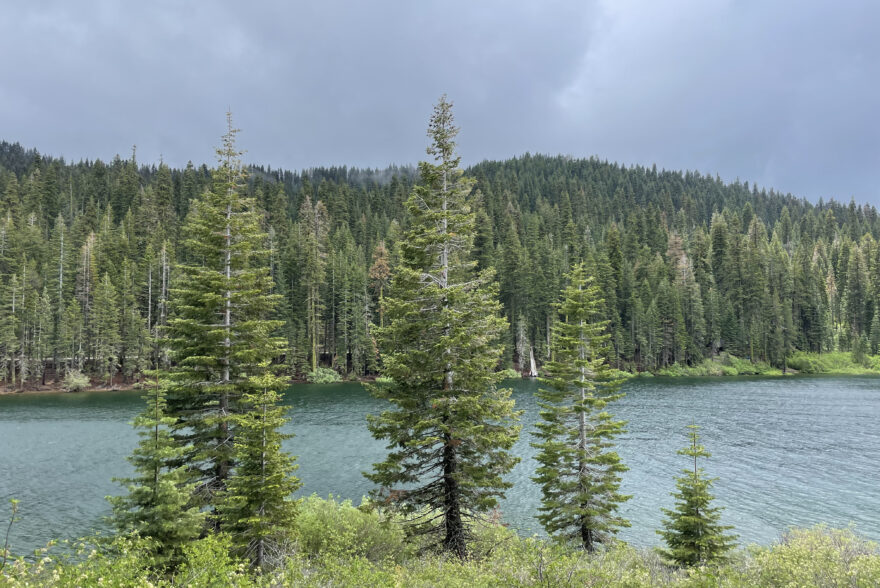Press Release: Metropolitan invests in health of northern Sierra watersheds through Forest Resilience Bonds


Agency aims to better understand benefits of watershed health to water supply, quality, including impacts of increasingly severe wildfires
Sept. 13, 2024 – Metropolitan Water District will be one of the first backers of an innovative new approach to restore forests, improve watershed health and increase the reliability of the state’s water supplies in the face of climate change and worsening wildfires.
Metropolitan’s Board of Directors voted Tuesday (Sept. 10) to provide funding for three forest restoration programs in the northern Sierra – headwaters of the State Water Project, which on average delivers 30 percent of the water used in Southern California. The programs will include pilot investigations to better understand the effect of improving watershed health on water quality, water supply, habitat protection, wildfire risk reduction, and carbon sequestration.
“We know that healthy forests have many benefits. But we want to better understand the connection between the health of this watershed and our state project supply to see if the benefits can be quantified,” Metropolitan Interim General Manager Deven Upadhyay said. “With state supplies increasingly stressed by drought, climate change and wildfires, these studies will give us the data we need to more confidently identify cost-effective measures that can be deployed quickly and efficiently to protect watershed health.”
The forest restoration programs are being funded through a new finance model known as a Forest Resilience Bond, managed by the non-profit Blue Forest, which was founded to advance restoration projects through partnerships. The financing mechanism combines public and private funding to expedite restoration efforts that otherwise could take decades to advance. Forest Resilience Bonds are financed by private investors and provide upfront capital to partners who will be able to more quickly conduct the restoration activities. The bonds are then repaid by utilities, governments and other public and private entities that ultimately benefit from having a healthy forest, like Metropolitan.
“Use of these bonds is increasing across the West. Metropolitan is one of the first agencies to step up to support these particular programs in the high Sierra. We’re hopeful that other utilities and partners will similarly recognize the value of investing in the health of natural resources they benefit from,” Metropolitan board Chair Adán Ortega, Jr. said.
Metropolitan’s board agreed to provide up to $200,000 each year over the next two years to the three restoration programs – two in the Feather River watershed above Lake Oroville and one in Upper Butte Creek. The restoration efforts vary by watershed, but include forest thinning, forest restoration after a wildfire, and protection of areas not recently burned. Lassen National Forest, Plumas National Forest, Sierra Institute and other organizations will help implement the programs.
The three restoration programs range in cost from $3.5 million to more than $5 million. Blue Forest is working to bring in other partners who benefit from a healthy forest to support the full cost, in addition to state and federal funding.
The Upper Butte Creek program will also offer a unique opportunity to investigate the benefits of improving the health of a watershed on vulnerable fish species. Butte Creek supports the largest population of naturally spawning wild spring run chinook salmon and may be the only remaining naturally spawning population in the region, given recent wildfires.
Wildfires are becoming more frequent and more severe in California and across the West due to climate change and overly dense forests – a product of modern fire suppression practices. Catastrophic wildfires have burned more than 1.5 million acres in the Feather River watershed.
In addition, climate change is challenging Metropolitan’s state project supplies, causing reduced snowpack, increased drought severity and frequency, changing precipitation patterns, degradation of habitat and ecosystems, and sea level rise.
Improving watershed health could lessen some of those impacts, Upadhyay said. For example, programs to thin out dense forests could not only help reduce the severity of wildfires, but also shrink evapotranspiration, as less water is used by trees.
“If these restoration programs demonstrate that they significantly improve water supply and water quality, it opens the door to working with other large water agencies across the state to make these investments in watershed health on a much broader scale,” Upadhyay said.
The Metropolitan Water District of Southern California is a state-established cooperative that, along with its 26 cities and retail suppliers, provides water for 19 million people in six counties. The district imports water from the Colorado River and Northern California to supplement local supplies, and helps its members to develop increased water conservation, recycling, storage and other resource-management programs.